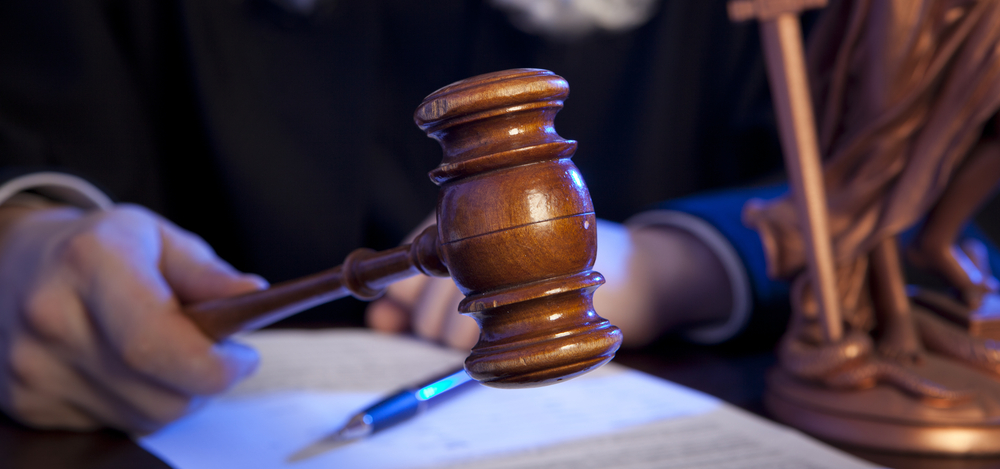State supreme court calls out BigLaw lawyer for failing to stanch evasive client’s 'deposition fiasco'

Image from Shutterstock.com.
A Sullivan & Cromwell partner has been called out by the Delaware Supreme Court for failing to put an end to his client’s misbehavior that resulted in a “deposition fiasco.”
The court referred to the partner, Brian Frawley, by name and said he apparently made no attempt to stop his client’s “flagrantly evasive, nonresponsive and flippant answers.” The Recorder and Law360 have coverage.
A lawyer who represents a client who engages in deposition misbehavior “cannot simply be a spectator and do nothing,” the Delaware Supreme Court said.
The client, Carole Shorenstein Hays, was a Tony Award-winning theater producer involved in a contractual dispute over the staging of two popular Broadway shows. The state supreme court told a chancery court to reconsider an injunction, then focused on Hays’ deposition answers in an addendum beginning at page 51 of its June 20 opinion.
“The deposition appears to have been a colossal waste of time and resources due to her behavior, which made a mockery of the entire deposition proceeding,” the Delaware Supreme Court said. “We write to remind counsel that they have a responsibility to intercede and not sit idly by as their client engages in abusive deposition misconduct.”
The opinion included several examples of Hays’ evasive answers, calling them “a representative but incomplete identification of Hays’ ridiculous and problematic responses to questions.”
In one example, Hays sidestepped a question about how many times she met with lawyers to prepare for the deposition:
“Q. How much time did you spend with your counsel to prepare for the deposition?
A. Sufficient.
Q. How much is sufficient?
A. The appropriate amount needed.
Q. Can you give me an estimate of the amount of time?
A. It was completely enjoyable.
Q. How many times did you meet with your counsel to prepare for the deposition?
A. Preparation is always a good thing.
Q. That wasn’t my question. How many times did you meet with your counsel to prepare for the deposition?
A. I met with them—I’m not understanding the question.
Q. You told me you met with your counsel to prepare for the deposition.
A. Sure.
Q. How many times?
A. Well, see, I think of time as a continuum. So I think I met with them from the beginning to the end. And the beginning was the start, and then there was the rehearsal, and then there was the preview, and now it’s what I think of as the performance. So, in my mind, I’m answering what you’re asking. If you could be more specific. Do you want hours?
Q. Yes.
A. Oh, I don’t wear a watch. So I know the sun coming up in the morning and the moon coming up at night.”
In this exchange, Hays was asked about her education:
“Q. Did you go to college?
A. Well, yes.
Q. Where?
A. I mean tuition was paid.
Q. Where did you go?
A. Oh, I had books from a lot of different places.
Q. Did you enroll at any of those places?
A. Oh, sure.
Q. Where did you enroll?
A. Many, many universities—not that many—a few.”
Later, Hays said she attended New York University, but she didn’t recall whether she earned a degree. This exchange followed:
“Q. Since you completed your studies at NYU, have you had employment anywhere?
A. How do you define ‘employment’?
Q. You’ve never used the word employment in your life?
A. I’m just wondering how you define it.
Q. Have you used the word employment in your life, ever?
A. I’m asking you.
Q. You don’t get to ask the questions. I get to ask the questions.
A. Oh, sorry.
Q. Have you ever used the word employment in your life?
A. I’ve used many words.”
The Delaware Supreme Court said the trial court “appropriately awarded attorneys’ fees and costs for Hays’ willful bad-faith litigation tactics.”
The court noted that Delaware rules generally bar conferences between an attorney and client during a deposition. Given those restrictions, lawyers have to discuss the need to avoid bad-faith tactics during preparation for the deposition, the court said.



